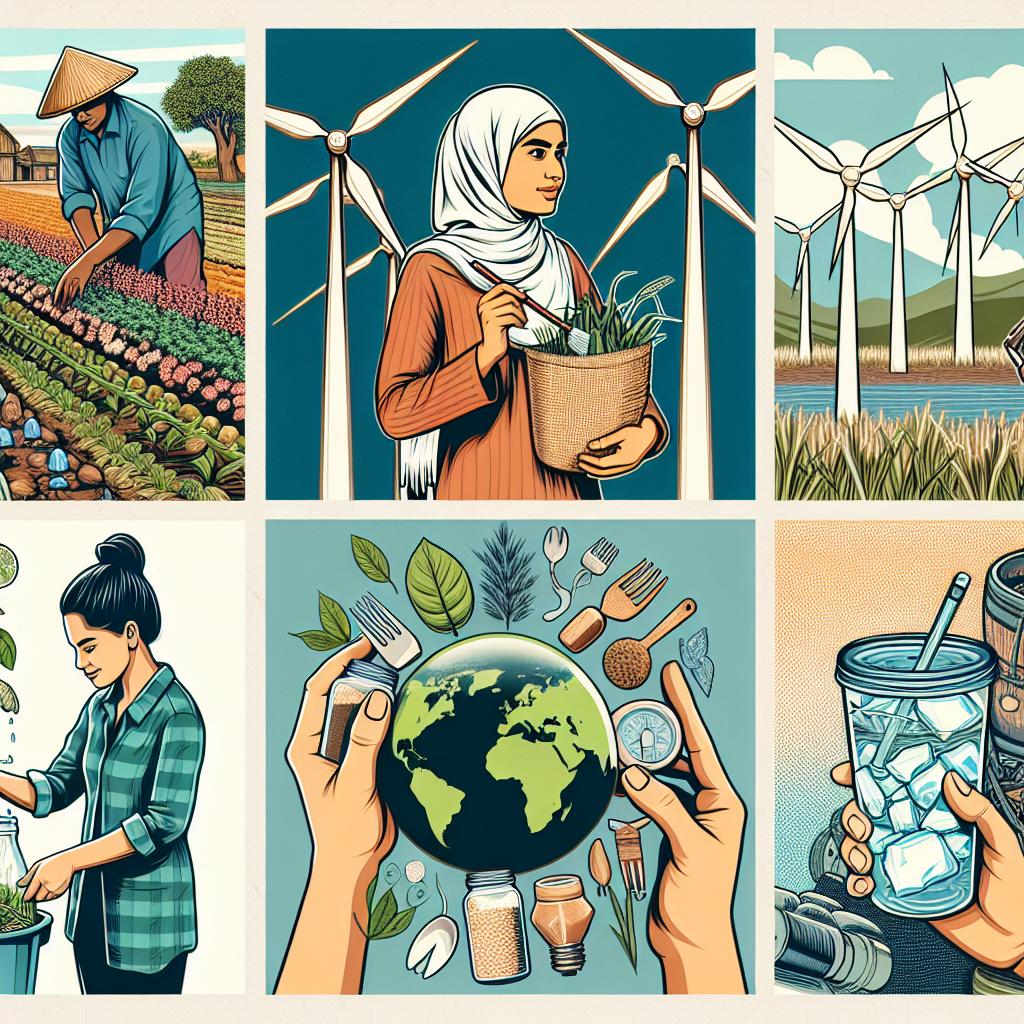Farming for a Greener Future

In the quest for a more sustainable future, individuals and communities around the world are adopting practices that reduce waste, promote clean energy, and preserve natural resources. From the fields to our homes, these efforts are making a significant impact on our environment and setting the stage for a greener, more sustainable future.
First, let's explore the world of sustainable agriculture and waste management. Farmers are leading the charge, implementing practices that not only help reduce waste but also improve the health of their land. For instance, crop rotation, cover cropping, and natural pest control are just a few examples of sustainable farming methods that not only help reduce waste but also promote soil health and biodiversity. Furthermore, farmers are finding innovative ways to repurpose agricultural byproducts, such as turning corn stalks into biofuels or using vegetable scraps to create compost.
As we focus on agriculture, it's important to remember the role renewable energy plays in reducing waste and improving air quality. Wind turbines and solar panels are becoming increasingly common sights on farms, providing a clean and sustainable source of energy for irrigation and other farm operations. Not only do these renewable sources reduce greenhouse gas emissions, but they also help farmers save money on energy costs, allowing them to invest in other areas of their business.
Speaking of energy efficiency, let's take a look at how small changes in our homes can make a big difference. Simple steps like turning off lights when not in use, using energy-efficient appliances, and insulating your home can significantly reduce your energy consumption and, in turn, your carbon footprint. Additionally, using reusable bags, water bottles, and containers, as well as purchasing items with minimal packaging, are just a few of the many ways we can adopt a zero-waste lifestyle.
But our commitment to sustainability doesn't stop at our homes. Forest protection plays a crucial role in mitigating climate change and preserving our planet's natural resources. Forests act as carbon sinks, absorbing and storing large amounts of carbon dioxide from the atmosphere. By protecting and preserving these vital ecosystems, we can help prevent deforestation and the release of vast amounts of greenhouse gases. Moreover, forests provide habitat for numerous plant and animal species and contribute to the overall health of our planet.
Lastly, let's discuss water conservation, an essential aspect of sustainability. With a growing global population, it is more important than ever to conserve this precious resource. Simple steps like fixing leaks, using a broom instead of a hose to clean driveways, and collecting rainwater can make a significant difference. Additionally, farmers can adopt irrigation methods that minimize water waste, such as drip irrigation, and implement water conservation practices, such as using cover crops to retain soil moisture and reduce the need for irrigation.
In conclusion, the intersection of sustainable agriculture, renewable energy, zero waste living, energy efficiency in the home, forest protection, and water conservation is creating a ripple effect, inspiring individuals and communities to take action and make a real difference in our world. By implementing these practices, we can reduce waste, improve air quality, and preserve natural resources for future generations. The future is in our hands, and together, we can create a greener, more sustainable world.




